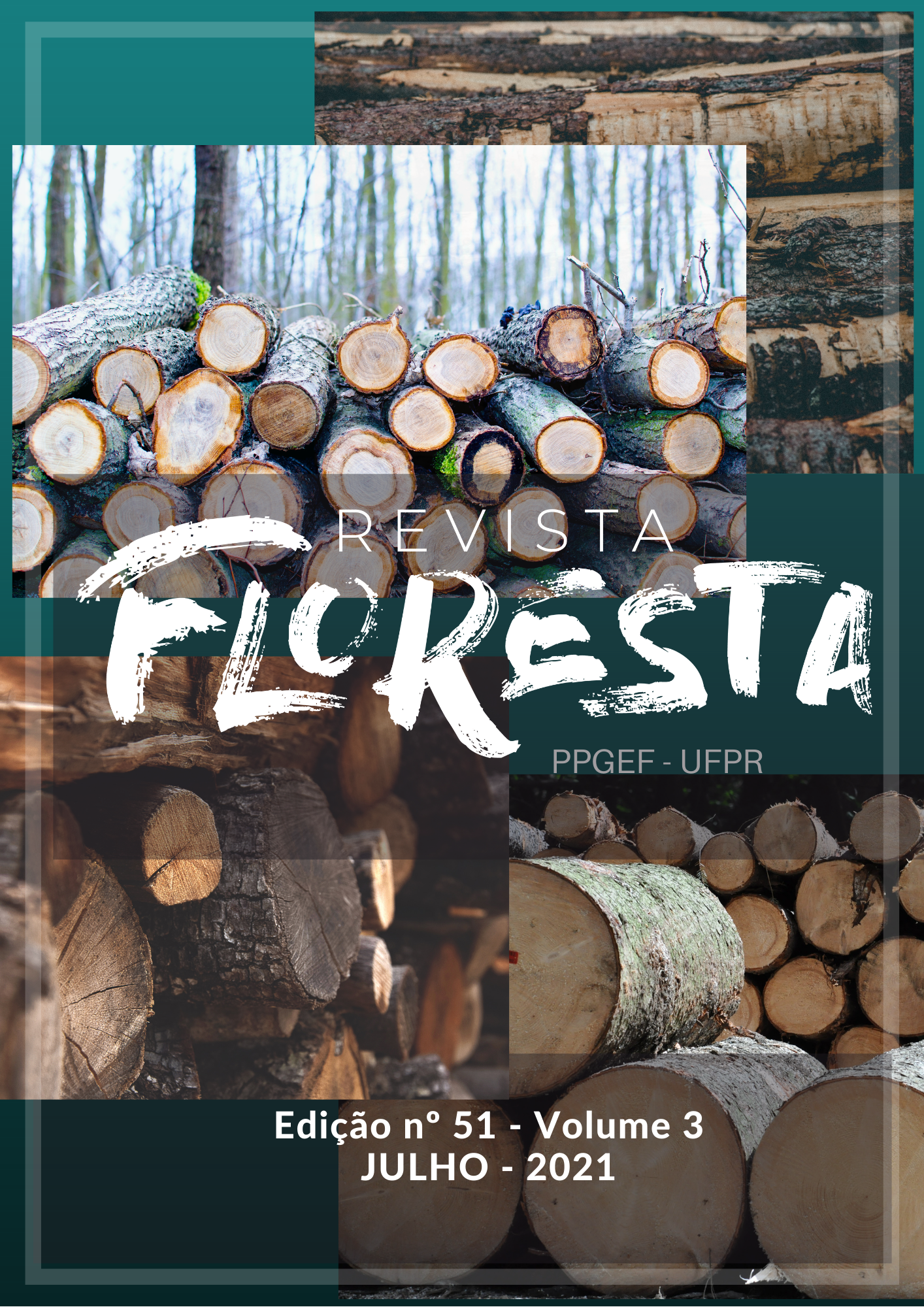IMPACT OF WEATHER CONDITIONS ON THE ENERGETIC QUALITY OF ACICULATED DRY BRANCHES OF Araucaria angustifolia (Bertol.) Kuntze PRODUCED THROUGHOUT A YEAR
DOI:
https://doi.org/10.5380/rf.v51i3.72963Palavras-chave:
dry biomass, free-growing trees, solid fuel, renewable energyResumo
The aciculated dry branches of Araucaria angustifolia, which fall throughout the year by the natural pruning of the species, can be a renewable and sustainable alternative for energy generation and income for rural producers inserted in the Mixed Ombrophilous Forest. This research aimed to energetically characterize these dry branches produced by free-growing trees throughout the year in the Santa Catarina's Plateau Region. Also, it aimed to determine the influence of weather conditions on the energetic quality of the aciculated dry branches. To that end, we demarcated 37 trees by choosing a quadrant according to the radius of the crowns in which the dry branches were collected. Collections happened monthly between June 2018 and May 2019. Subsequently, the biomass's physical, chemical, and energetic properties were determined. A simple correlation between climatic variables and properties was obtained. The main advantage of aciculated dry branches as an energy resource was their low moisture content (18%) and the disadvantages were the high ash content and the low basic density (220 kg.m-3). Except for the moisture content, all the properties of the aciculated dry branches varied throughout the year, and they were influenced by the weather variables. The correlations between the climatic variables and the properties analyzed indicated that the energetic quality of the dry branches was better in the months with the highest values of average temperatures and solar radiation.
Downloads
Publicado
Como Citar
Edição
Seção
Licença
Direitos Autorais para artigos publicados nesta revista são do autor, com direitos de primeira publicação para a revista. Em virtude da aparecerem nesta revista de acesso público, os artigos são de uso gratuito, com atribuições próprias, em aplicações educacionais e não-comerciais.A revista, seguindo a recomendações do movimento Acesso Aberto, proporciona acesso publico a todo o seu conteudo, seguindo o principio de que tornar gratuito o acesso a pesquisas gera um maior intrcambio global de conhecimento.
Conteúdos do periódico licenciados sob uma CC BY-NC-SA 4.0



